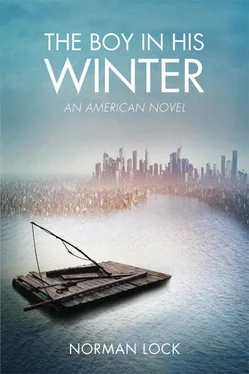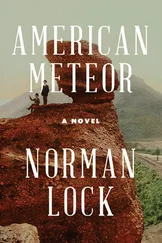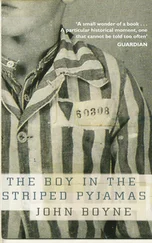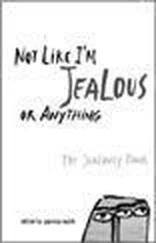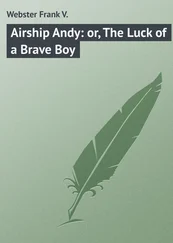WE ENTERED THE INLAND PASSAGE at St. Lucie Inlet on Florida’s eastern coast. Norfolk lay 987 miles to the north. Most of the way was no wider than the Mississippi at Hannibal. I never liked the feeling of spaciousness one gets on the plains or on the open sea. Maybe because I lived my early years — those called “impressionable”—among trees that cloaked our lumber town and much of the river southward to the Gulf. Distant horizons and vistas without end dizzy me. Contemplating them, I feel unmoored. We cruised between marshy banks of salt grass and crowding cypress trees, under pale green canopies of oaks — slowing, while we passed weather-beaten hamlets and when the waterway turned from river to canal or widened into lakes incised by sailboat keels and water skis. We fished in the lazy fashion of backwaters, trading outriggers and the fighting chair for light tackle or hand lines. I put away the cruel gaff and marlin hooks.
Of all the days I spent aboard the Psyched, these on the Intracoastal Waterway were best. When the brothers quarreled, I left them the cockpit and climbed onto the bridge to sit with James. We were often quiet, which was fine with me. With James, I never felt obliged to speak. I talked, or not, according to my mood or the provocations along the way: a wading bird, thin and ungainly, shrugging off the weight of gravity to find its elegant form in flight; a huge carp broaching the water with a flash of gold scales; a deer, its summer coat glossy and chestnut, kneeling on delicate legs to drink; the burned-out ruin of a house or boat, showing gray ribs to the indifferent sun; and once, near Brunswick, on the Georgia coast, a drowned man draped with weeds as if in mourning for himself.
Edmund reached with a boat hook through the transom door and hooked the man while James idled the engines. The body lapped heavily against the stern with a dismal sound. Edmund turned it over; it wallowed in the trough behind us and then seemed to insist on its dignity by a show of calm disregard for our wake, Edmund’s hook, and the unkind light, by which we saw how the water had bloated him, how time had turned him blue, and how crabs had gotten to his face and hands. I was sick in my yellow hat.
“Edmund, let him be,” said Edgar.
Edmund obliged his brother by pushing the dead man away from the boat. The body was galvanized in a current, as if it had borrowed its will, and moved off.
“Shouldn’t we take him ashore?” I asked James, who was tapping a fingernail against his golden tooth impassively.
“Can’t do that, Albert. Can’t get involved — not with what we’re carrying. You know that.”
I thought I detected spite for my having rebuffed Camille’s generosity. But I knew he was right about the dead man, though I wished we could help him find his way to consecrated ground. (All ground is consecrated by rain and snow, by sun and the migrations of earthworms through the chocolate earth.) One man adrift in space and time is enough: Jim unburied is enough. James and I did not look each other in the eye. He pushed on the throttles, and the boat pulled away from that fatal intersection. I wanted to say some holy words but didn’t know any, except for Ashes to ashes, dust to dust, which was what Tom Sawyer had said over the rigid bodies of frogs and cats. I spilled a little ash from my pipe onto the water. I had seen how death serves its summons on our kind. I was caught on the rack of time as I am now on the rack of my story, which is told in time and about it.
You say I should make it livelier, that it needs more action and less meditation. Fine, we’ll rid the second draft of all annoying thought and embarrassing emotion. I’ll tell a story — simple and plain — like “Big Two-Hearted River.”
We went on and delivered mail at Savannah, Charleston, and Cape Fear. I angled for redfish, sea trout, bluefish, black drum, and Spanish mackerel. I lolled against the gunwale, half-asleep, half-afraid I would put myself under, entranced by shifting coins of light. Tired of fishing, I kept James company at the helm. Kitty Hawk was on our starboard side. Another pair of brothers, Wilbur and Orville, had flown an airplane on the beach below Kill Devil Hills in 1903 while Jim and I were on the raft. Their minds spun shining equations concerning lift, which unseated gravity; our minds — Jim’s and mine — were luminous with history, which we had overleaped. The Connerys’ minds were mired in base appetites. I looked at James and almost wished I’d stayed in Panama City. But there was no going back. We may not realize it, but every point during the passage of our lives is a point of no return — except for what memory permits.
“Do you think of Sophie and Camille?” I asked James, curiosity overcoming discretion.
“I try not to,” he said without antagonism. “It’s better to look ahead and imagine what’s beyond the reaches than to cry over the past. Best not to get bogged down in it, Mr. Albert.”
I have always fought the treachery of the past, which rises up and makes the present unlivable.
OUR LAST DELIVERY ON THE INLAND PASSAGE was Norfolk, Virginia. We tied up at an abandoned wharf north of the Campostella Road bridge. Edgar and Edmund put on mail carriers’ uniforms and packed mailbags with cannabis. In Charleston, dressed as deliverymen, they had pushed orange-colored hand trucks stacked with bricks in shipping cartons. They were, at one and the same time, visible and not: the brothers, the boxes, the mailbags. This, too, was Edgar’s idea, and you must admit its brilliance, regardless of your low opinion of him. I stayed behind with James, helping wash the cockpit, swab the decks, and polish the brightwork with chamois cloths. As I recall, we said little that afternoon, and I see no point in inventing conversation. Not now, when I’m hell bent on the truth.
The brothers returned in high spirits, their mailbags empty. Edgar set the day’s Virginian-Pilot newspaper on the galley table. I saw the date and said, without thinking there could be consequences, “Today’s my birthday.”
James shook my hand and was pleased. “How old, Master Albert?”
“Fourteen.”
“Happy birthday!” said Edgar, clapping me on the back. “May you live long enough to know better, as my old man used to say.”
“Let’s get the little shit laid!” said Edmund, who had, I saw, been drinking.
Edgar offered to finance my rite of passage. (Or is it right ?)
I was reluctant; James, worried. “Fourteen’s a little young,” he said.
“Crap!” said Edmund.
“Fourteen’s the perfect age,” said Edgar. “He can see what his hand’s been missing, and he’s young enough not to have to shoot himself with regret. Isn’t that right, Al?”
I nodded, afraid to do otherwise. How many boys have been sent to a woman’s bed for the first time, unwilling and unfledged — carried there by a jeer or a maxim? James paced the saloon, not knowing whether to abduct me, break the brothers’ heads, or give me one of his French letters. Edgar drizzled me with cologne, like a priest sprinkling holy water. Edmund guffawed and tipped back a bottle in a brown paper bag. The occasion was festive and might have been mistaken for a party, had I not been frowning.
“The kid still stinks,” said Edmund.
Edgar must have agreed, because he pushed me into the master stateroom head to shower.
“I still say Albert’s too young to be with a woman,” James said while Edmund practically barked me with water jetting from the shower wand.
“He’ll be fine!” Edgar snapped.
“You and Edmund better watch out for him,” James admonished.
“Stop your clucking, Jimbo! We’re Al’s uncles, aren’t we? You remember that, Albert, if anybody asks. You’re with your uncle Edgar and your uncle Edmund. We’ve been driving the boat up north, after Katrina wrecked our house and landing. . doing a little fishing and sightseeing while we’re at it. You lost your folks in the hurricane.”
Читать дальше
